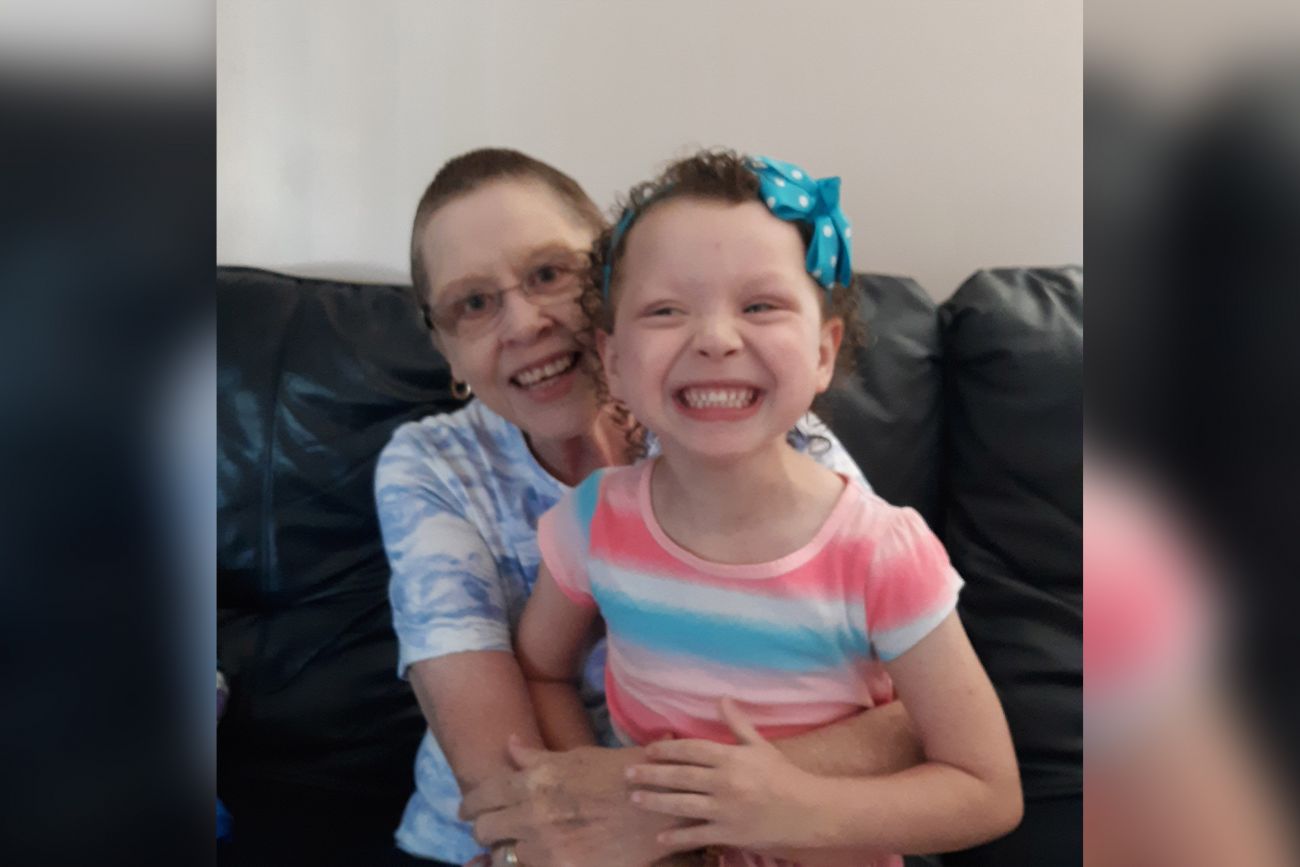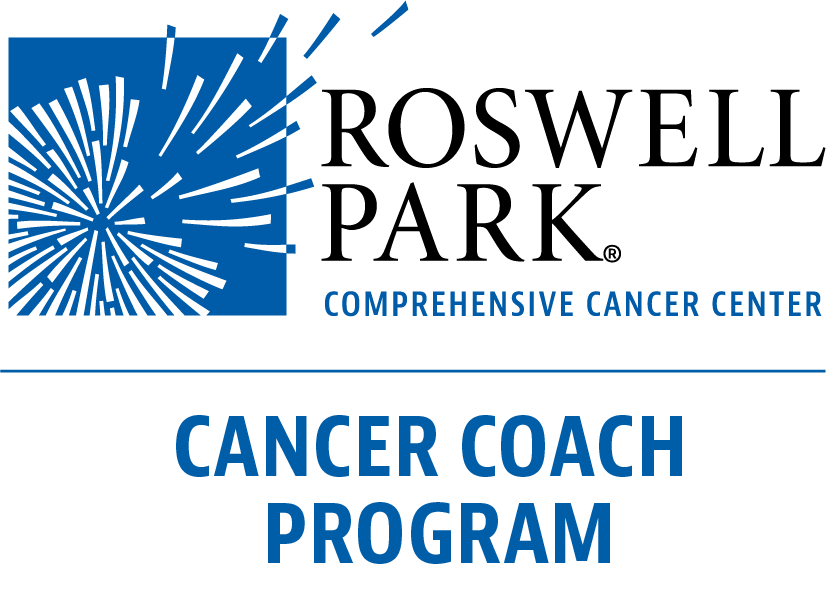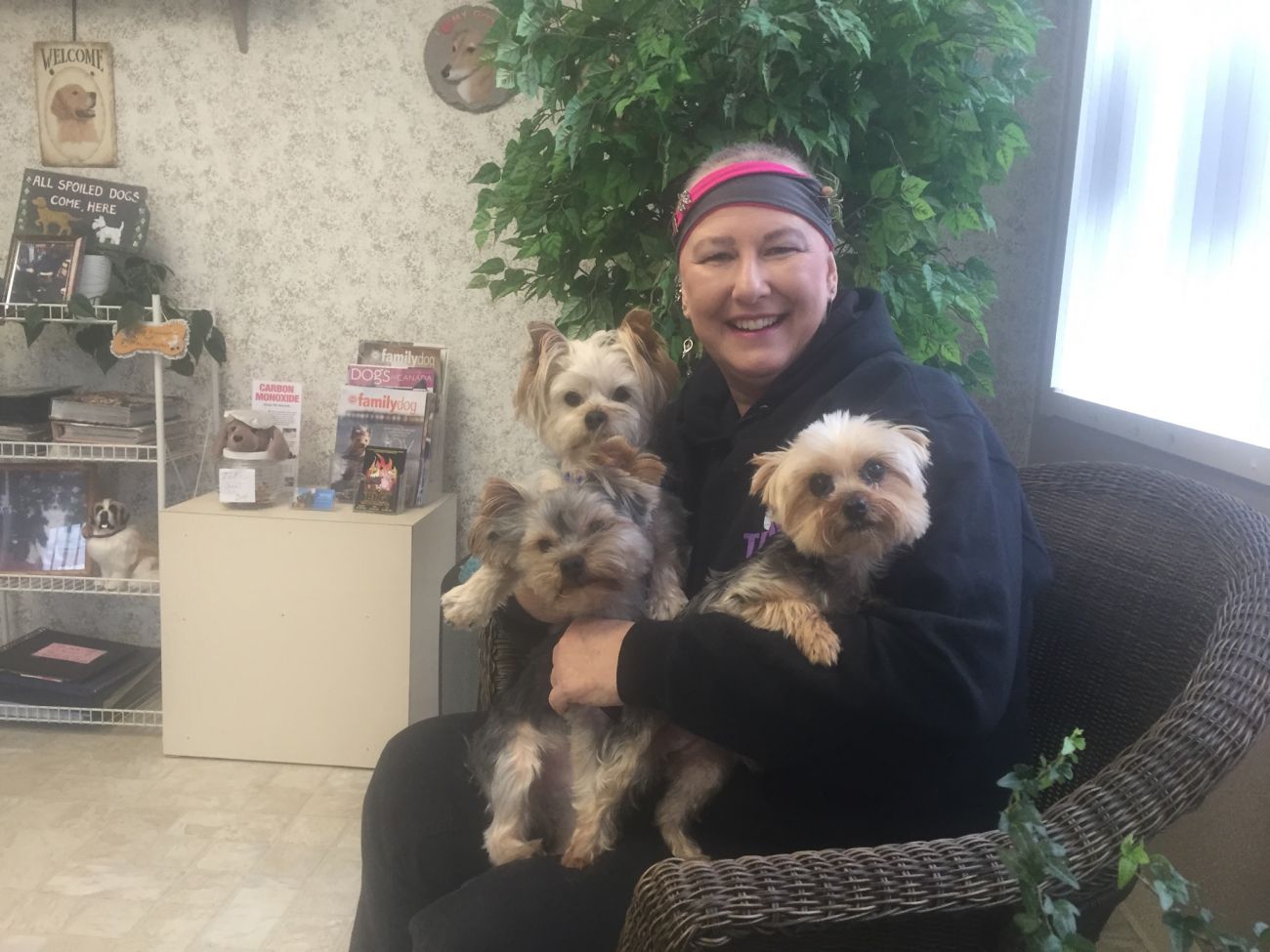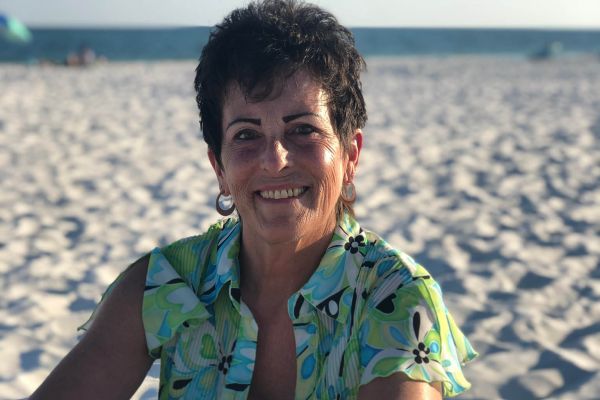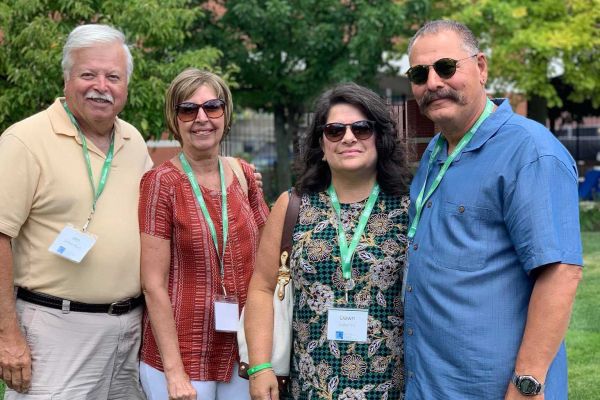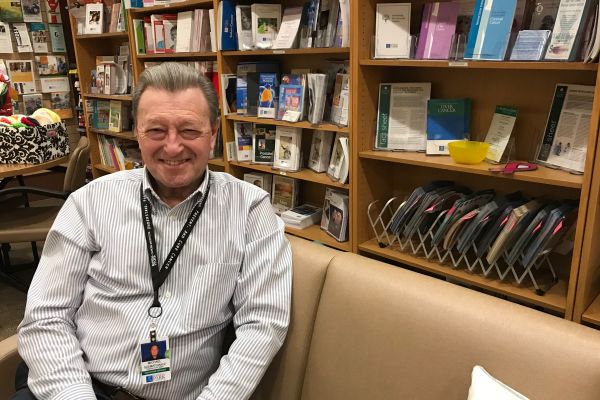Janice had passed a big milestone in her journey as a breast cancer survivor — the five-year mark — and figured going in for a six-year exam would be no big deal.
She didn’t expect to be told the cancer had returned.
A biopsy showed the cancer had spread into her lymph nodes, and even though the tumor itself was small, she decided to have a mastectomy of her right breast to reduce the risk of cancer returning a third time.
Still, she’d have to endure eight rounds of chemotherapy and 25 rounds of radiation this time around. “I started chemo after Christmas and my last radiation treatment was in early June.”
In her first bout with cancer, in 2013, it was caught early and her treatment was a type of brachytherapy, called balloon catheter radiation, in which she received radiation twice a day for just five days, in addition to a daily oral pill of tamoxifen, a hormone therapy that blocks the effect of estrogen in breast tissue.
Facing a longer and more rigorous course of treatment the second time, Janice was nervous. “I had visions of myself living with my head in the toilet for months, vomiting all the time,” she admits.
This time around, however, Janice had a Cancer Coach by her side, giving her reassurance that it didn’t have to be that bad.
In late 2019, she was paired up with coach Cynthia, who had undergone a similar treatment course when she fought breast cancer in 2017: lumpectomy on her right breast, four rounds of chemotherapy and 34 sessions of radiation. At first, Cynthia didn't want to talk about cancer, and even waited four days before telling her husband about her diagnosis. But she realized that it could have been worse because she almost skipped her appointment during which the lump was found. Her experience has made her a tireless advocate for early detection and wellness checks.
At work, Cynthia was up front and honest with her colleagues. They were supportive from the start, with some asking questions on where they could get more information about cancer. Others were caring for loved ones going through their own cancer journeys and looking for advice. She advocated early detection and the importance of regular wellness exams, which she still credits with her successful breast cancer treatment.
The support of her colleagues helped her through her treatment and inspired her to become a coach. She’s been adamant about early detection, support and self-advocating since she received her diagnosis, something she shared early and often with Janice. Some still notify her when they’ve had their mammograms, a little reminder of the good she’s done and evidence her message of early detection was heard.
Providing support as a coach “is more than just being there for someone when they need something,” Cynthia says. “My parlor’s open 24/7.” If she doesn’t know the answer to a question, she’ll point Janice or one of the three other patients she coaches in the right direction.
For example, Cynthia, who lost her hair during treatment, shared a photo with Janice of what she looked like bald. “I was growing a rattail,” she says. “Short in the front and a rattail braided in the back. Now it is down to my bra strap in the middle of my back. I told her, ‘This is what you have to look forward to. It may come in curly. Don’t cut it — make light of it.’”
During her treatment, Cynthia wore a headband with a big spider on it, to indicate she was open to drawing attention to her bald head and to discuss the reason behind it. She felt this was another way to make people comfortable talking with her about her cancer and gave her another opportunity to stress the importance of early detection and regular wellness checks.
Roswell Park's Cancer Coach Program
You can connect with a cancer coach or become one yourself.
Learn MoreWhen Janice woke up with hair all over her pillow, she asked her son to shave her head. “After he did it, I went into the bathroom and looked into the mirror and it was my father staring back at me. That was the shock. That’s when I really broke down and cried. I think Cindy had a better attitude about it. She’s very positive, which is great.”
Janice says her second battle with cancer went a little easier, thanks to her coach.
“It really helped,” she says. “Especially to talk with someone who’d been through chemo and radiation before. She was very positive and it helped a lot.”
“Janice is so strong and has inspired me along the journey in more ways than she will ever know or imagine,” Cynthia says. “The coach program helps us both: Janice shares her strength on how she fought cancer twice, and sometimes we both have good and bad days. We can relate to the same things. We laugh, joke and became friends. We share the small things through a quick text, or maybe a poem or picture or a future dream and, most important of all, how we will celebrate our anniversary.”
Editor’s Note: Cancer patient outcomes and experiences may vary, even for those with the same type of cancer. An individual patient’s story should not be used as a prediction of how another patient will respond to treatment. Roswell Park is transparent about the survival rates of our patients as compared to national standards, and provides this information, when available, within the cancer type sections of this website.
